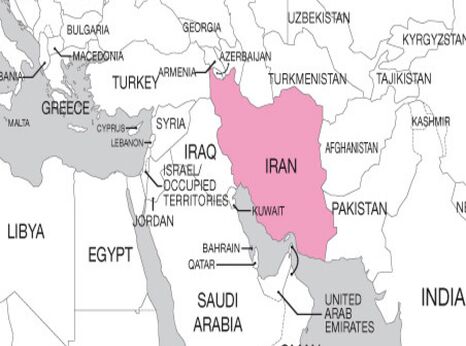British-Iranian labour activist detained

The efforts of workers, trade unionists and labour rights activists in Iran to raise concerns about unpaid wages, precarious working conditions, staggering inflation and poor living standards have consistently led to crackdowns by the Iranian authorities. Despite undue restrictions on the right to freedom of association and a ban on independent trade unions in Iran, many workers and their allies continue to courageously form such unions and workers’ rights organizations. Their efforts have often led to dismissals without justification or being forced into early retirement, attacks and beatings by security forces policing workers’ protests, reprisals for organizing or participating in peaceful protests, arbitrary arrest and detention, torture and other ill-treatment, and long prison sentences on spurious national security charges. At least one labour rights activist, Arash Johari, who was arrested during the crackdown in October 2020, has since been sentenced to 16 years in prison in connection with his labour rights activism, leading to fears that others, including Mehran Raoof, could also face harsh prison sentences.
Amnesty International has documented a pattern of systematic violations of the right to a fair trial in Iran, beginning from the time of arrest right up until when defendants stand trial. Individuals detained, investigated and prosecuted, especially those who are dual nationals or who are arrested on politically motivated charges, including human rights defenders, are subjected to grossly unfair judicial proceedings. Most are arrested without warrants and held in undisclosed locations without access to their families or lawyers. Prosecution authorities and interrogators belonging to security and intelligence bodies, including the Revolutionary Guards, systematically deny detainees their right to access a lawyer from the time of arrest, including even lawyers vetted and approved by the judiciary, and during the investigation phase of their case. Torture and other ill-treatment against individuals arrested in politically-motivated cases is widespread and systematic, especially during interrogations, and prison and prosecution authorities also deliberately deny prisoners of conscience and other prisoners held for politically motivated reasons access to adequate health care, including medication. Intelligence and security agents often hold detainees in poor and unsanitary conditions in prolonged solitary confinement, including in section 2A of Evin prison, which is under the control of the Revolutionary Guards, for up to 24 hours a day for weeks or months and only remove them from their cells for interrogations. Detainees in solitary confinement are held without any access to natural light and fresh air, often in filthy cells that are infested with insects. Such cells often lack adequate sanitary facilities and products for detainees to maintain personal hygiene, detainees sleep on the floor with typically one blanket and are given meagre rations of poor-quality food. Former detainees interviewed by Amnesty International have consistently said that detention in prolonged solitary confinement caused them immense psychological pain and suffering and was used to coerce them to make “confessions”. Under such circumstances, prolonged solitary confinement in and of itself amounts to torture. Forced "confessions" obtained under torture and other ill-treatment and without a lawyer present are consistently used as evidence by courts to issue convictions.
International human rights law prohibits the arbitrary deprivation of liberty. The UN Working Group on Arbitrary Detention has found that detention can be arbitrary even when allowed by domestic law if it contravenes international standards or is incompatible with other human rights such as the rights to freedom of expression, association and peaceful assembly. Detainees have a right to communicate with the outside world and to receive visits. Prolonged solitary confinement, that is solitary confinement imposed for periods beyond 15 days for 22 hours or more a day, violates the absolute prohibition of torture and other ill-treatment. Torture is an international crime and its use is prohibited under all circumstances. Statements elicited as a result of torture, ill-treatment or other forms of coercion must be excluded as evidence in criminal proceedings, except those brought against suspected perpetrators of such abuse. The right to a fair trial is legally binding on all states as part of customary international law. Those facing criminal proceedings must have the right to access legal counsel of their choosing from the time of arrest and throughout the pre-trial and trial proceedings; not to be compelled to testify against themselves or to confess guilt; not to be detained on vague charges; to receive a fair, public hearing before a competent, independent and impartial tribunal; and to be provided with a public, reasoned judgement.